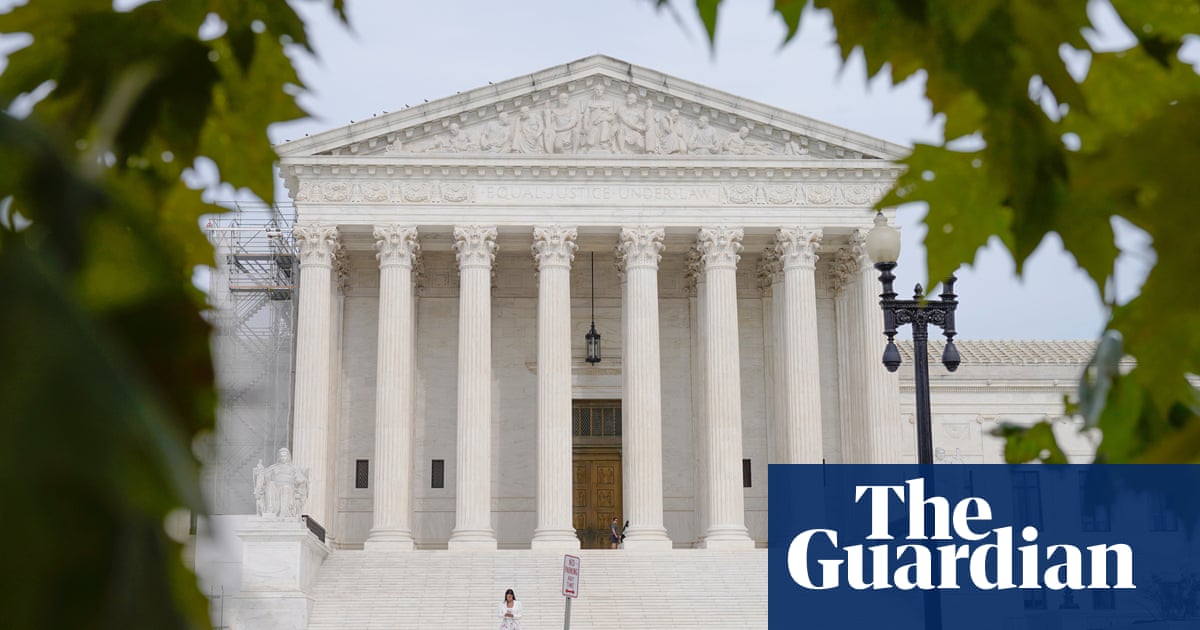Joe Biden worries that the “extreme” US supreme court, dominated by rightwing justices, cannot be relied upon to uphold the rule of law.
“I worry,” the president told ProPublica in interview published on Sunday. “Because I know that if the other team, the Maga Republicans, win, they don’t want to uphold the rule of law.”
“Maga” is shorthand for “Make America great again”, Donald Trump’s campaign slogan. Trump faces 91 criminal charges and assorted civil threats but nonetheless dominates Republican polling for the nomination to face Biden in a presidential rematch next year.
In four years in the White House, Trump nominated and saw installed three conservative justices, tilting the court 6-3 to the right. That court has delivered significant victories for conservatives, including the removal of the right to abortion and major rulings on gun control, affirmative action and other issues.
The new court term, which starts on Tuesday, could see further such rulings on matters including government environmental and financial regulation.



Article V of the the Constitution.
https://constitution.congress.gov/browse/essay/artV-1/ALDE_00000507/#
Amending the Constitution was intended to be much more usable, but over half the country doesn’t vote.
I can see how 9 out of 13 colonies (or equivalent votes in congress) might be more plausible than 34/50 states or 357/535 congresspeople (house + senate) considering the state of politics today.
The framers counted on congresspersons being good faith actors that loved America, and on a populace that wasn’t apathetic or incompetent on important matters of state.
To be fair, the farmers “envisioned” a country where a good proportion of the population was literally enslaved. Let’s not get ahead of ourselves
Not wrong to point that out.
I always liked this quote:
Sol Wachtler & David S. Gould, Et Tu Judge Bork?: Will Solipsism Destroy Conservative Ideology?, 15 Touro L. Rev. 1, 15–16 (1998).
This raises an important point, especially as it pertains to the civil war. This country nearly split itself in two because there were two very different ideologies that simply were not compatible.
The US is a fairly large nation geographically with no shared cultural heritage to speak of and greatly differing political beliefs. I don’t know the answer, but we really need to at least think about how we can expect all US citizens from liberal Californians to conservative Texans to ever be satisfied with the state of the national government we share.
The thing, though, is it isn’t so geographically separated. There are more Trump voters in California than in Texas and more Biden voters in Texas than New York. This is simply because there are more people in California than Texas and in Texas than New York, and even the blue states and red states are actually pretty purple.
True, my reason for using those states as examples had more to do with people’s expectations than actual numbers.
I’ve made a very similar point to some of my friends about how the two sides of the political spectrum are no longer geographically separated. A civil war today would be very different from the US Civil War in the 1800s. It won’t be a physical war like the Russia/Ukraine war because it geographically and logistically can’t be. I think we’re likely to see acts of terrorism as the tension continues to grow, but not geographic borders being drawn and guarded.
Always wondered what the legal definition of “several” was, as it applies to that clause.
It’s the adjective form. It just means separate or distinct.
I always took that phrase as expressed in the Constitution to be a quantitative factor? Several as in three to many.
https://thelawdictionary.org/several/
Nice, ty.
Still confused though, quantity wise. Basically, the point being made here: